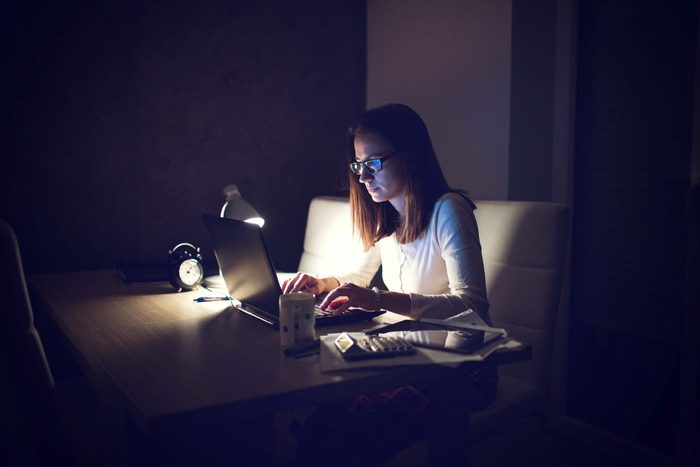
You love being productive at night
Finish stressful activities as early as you can. If you keep until bedtime, your mind will still be racing when you’re trying to sleep. When a bit of late-night work is necessary, take time to wind down before crawling into bed, says Neil Kline, DO, board-certified internist and sleep disorder physician. “Instead of doing bills before bedtime or rehashing the day’s events, have a soothing ritual,” he says. Try taking a hot shower, meditating, or listening to relaxing music, suggests Dr. Kline.
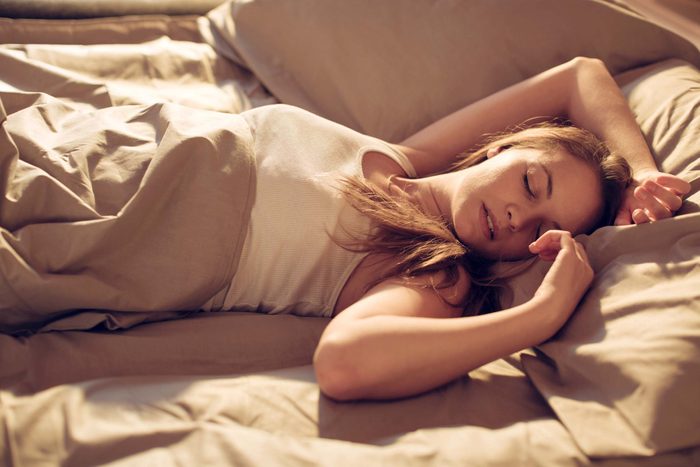
You catch up on sleep during the weekend
Without enough shuteye, you start building up a “sleep debt” during the week, says W. Christopher Winter, MD, president of the Charlottesville Neurology and Sleep Clinic and author of The Sleep Solution: Why Your Sleep Is Broken and How to Fix It. Sleeping in on the weekend can make up for some of that lost sleep, but too much could mess up your body’s sleep cycle. If you stay in bed until noon on Sunday, you’ll be tossing and turning when you crawl in bed that night. “You don’t have to make it all back in one big gulp,” says Dr. Winter. “Keep an eye out for how you’re going to sleep the next night.” There’s nothing wrong with snoozing a couple of extra hours on the weekend, but set an alarm to make sure you don’t overdo it with sleeping, he says.
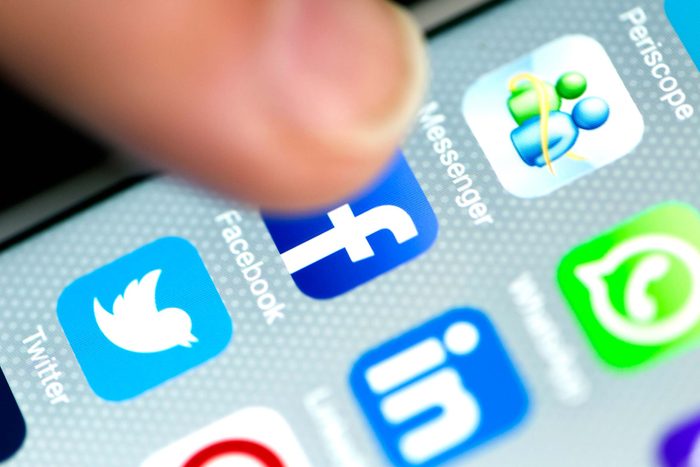
You check Facebook right before bed
Your body has a circadian rhythm that determines when to sleep and wake up. The cycle naturally lasts about 24 hours, and the brain uses light to figure out whether you should be awake. “Bright light is used as a very powerful time cue to influence the brain into believing it’s a certain time of day,” says Dr. Kline. Low light after sundown signals the body to produce sleep-inducing melatonin. But your brain doesn’t know the difference between sunlight and light from your phone, TV, and even lamps, so you might stay wired if you use that technology close to bedtime, says Dr. Kline. Experts recommend turning electronics off two hours before bed, but if that’s not realistic, try cutting down where you can, says Dr. Winter. For instance, watch TV in a dark living room rather than streaming Netflix from your laptop in bed, he suggests. The light isn’t the only problem though. Here’s why social media is ruining your sleep.
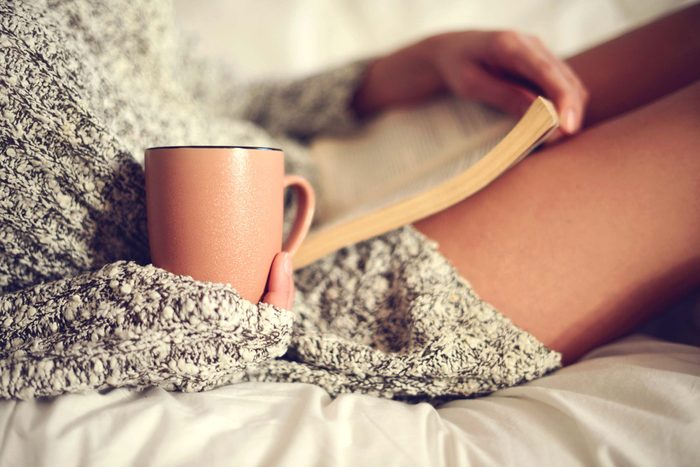
You read in bed to fall asleep
Don’t be surprised if you have trouble nodding off, even after you’ve tried winding down with a book. Doing activities like reading or watching TV in bed can keep your body from realizing it’s time for sleep. “You don’t want to associate the bed with activities associated with wakefulness,” says Dr. Kline. Using an eReader is a double whammy, says Dr. Winter. Like a phone screen, the light from an eReader can trick your body into thinking it’s still daytime, so use a real book instead. Attach a lamp to the wall or bed behind you so the light is indirect on the pages and not shining up at your face, says Dr. Winter. Try these sleep-inducing products to help you fall asleep faster.
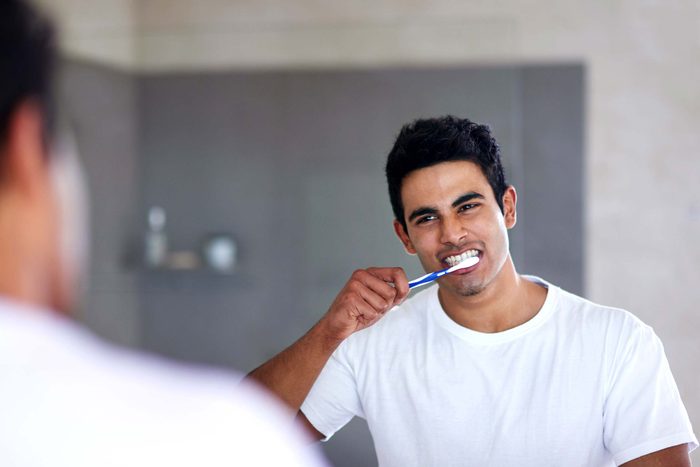
You brush your teeth right before bed
We’ve all been there: You can barely keep your eyes open on the couch, so you get ready for bed. But by the time you’ve brushed your teeth, you have a second wind. What gives? For one thing, those bright bathroom lights that are great for doing makeup can signal your brain to wake up. Plus, the energizing taste of peppermint could also rev you up. That’s no excuse to skip brushing your teeth at night though. “If you’re struggling with this, try brushing your teeth early,” says Dr. Winter. Brush your teeth during a commercial break instead of after your show, he suggests. You could also swap out that zingy peppermint toothpaste for a milder one at night (though that minty one could help wake you up again in the morning), says Dr. Winter. Still awake? Find out what your sleep habits might be trying to tell you.
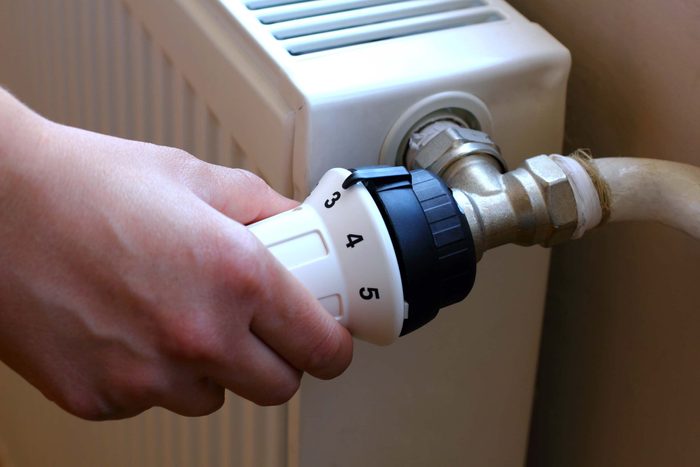
You blast the heat at night
Light isn’t the only thing signaling your body that it’s time for bed. “Our bodies have a rhythm to body and brain temperature,” says Dr. Kline. Your body cools down at night, so keeping your bedroom toasty can confuse it into thinking it’s still early. Most experts recommend keeping your bedroom around 65°F, according to the National Sleep Foundation. That temperature might not work for everyone, but in general, opt for a cooler temperature over warm when you’re trying to sleep, says Dr. Kline. Here’s what happens to your body when you take melatonin.
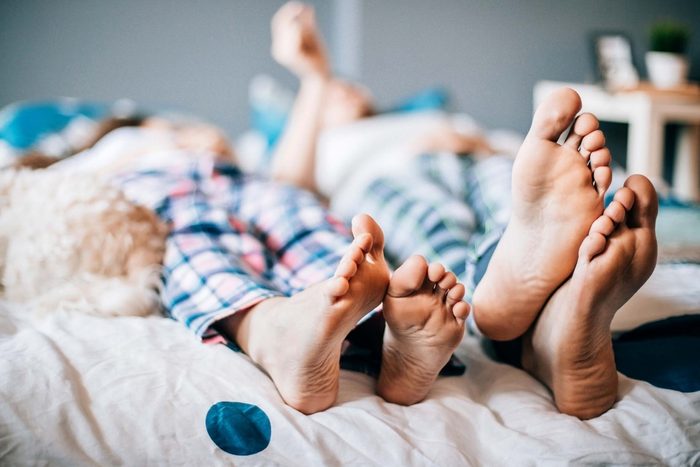
You sleep in cozy pajamas
Those long flannel pajamas might be cozy, but they also make it harder to control your body temperature during the night, says Dr. Winter. Sleep in as little clothes as you feel comfortable in, and pile on the blankets instead. “Create your warmth with bedding that can be pulled on and taken off throughout the night,” says Dr. Winter. “If you wake up too hot you can kick the covers off, and when you start getting cold again, pull them back up.”

You always reach for PM pain pills
It’s no surprise that pain can make it harder to sleep, but address the pain instead of just trying to sleep it off. “It surprises me how many people don’t recognize that,” says Dr. Winter. “They focus on the sleep problem and don’t focus on the pain problem.” Even though they have a sedative effect, some pain pills can actually lead to worse sleep quality, he says. Invest in a new mattress instead. A memory foam or adjustable mattress, for instance, could support your body better and ease your pain.
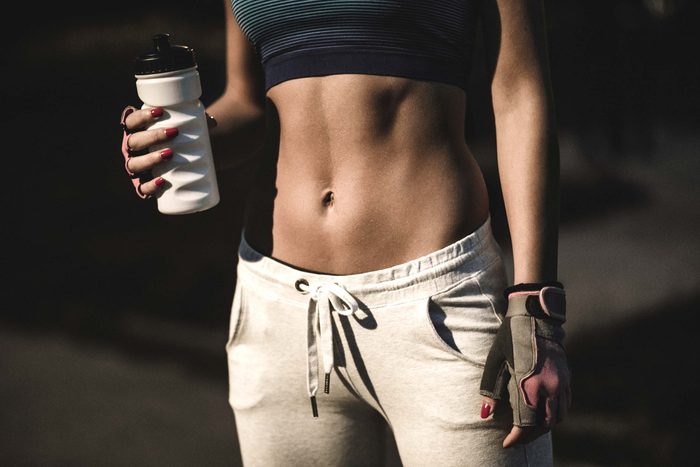
You work out at night
Physical activity can help you sleep better at night—if you time it right. Even though exercise generally helps promotes deep sleep, hitting the gym right before hitting the hay can keep you awake. “Vigorous exercise before bedtime can be counterproductive because those endorphins can remain in the system,” says Dr. Kline. If possible, try working out in the morning or afternoon. If your schedule only allows for an evening exercise routine, though, it’s better to work out later than not at all, says Dr. Winter.
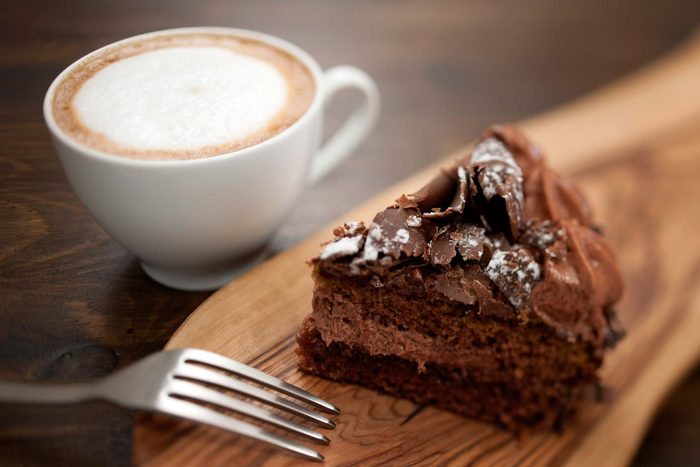
You get a coffee with your afternoon snack
You’d never chug a cup of coffee before bed, but caffeine—including from tea and soda—stays in your system for longer than you’d think. Even drinking it within four hours of bedtime could keep you awake at night, says Dr. Winter. A cup of coffee with dessert might not bother everyone, but some people’s bodies metabolize the caffeine more slowly, he says. ”One study says some people feel the effects way beyond four hours,” says Dr. Winter. Cut the caffeine off after lunchtime to be safe, he recommends. Read up on whether a sleep aid is right for you.

You enjoy a nightcap after dinner
Sure, that glass of red wine will knock you out fast, but that sleep won’t be good quality. “There’s a difference between sedation and sleep,” says Dr. Winter. Alcohol suppresses deep REM sleep, the dreaming period when your body restores itself. As the alcohol leaves your system, dreams come rushing in, making your sleep feel fragmented, he says. If you’re worried that alcohol could be cutting into your sleep quality, avoid drinking within five hours of bedtime, recommends Dr. Kline. Here’s what sleep doctors wish you knew about snoring.
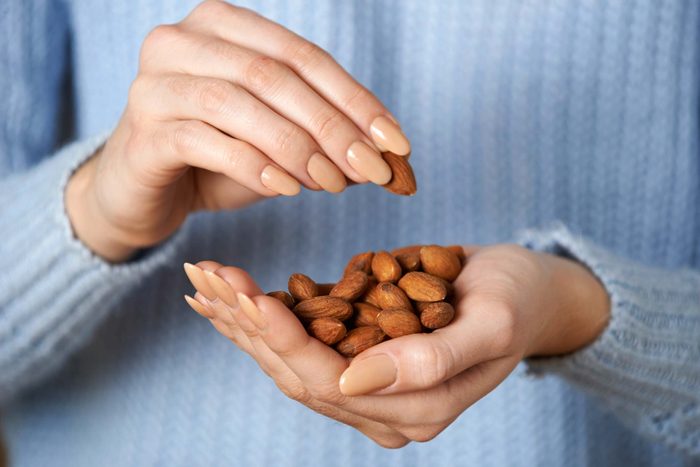
You eat right before bed
Going to bed with an empty stomach could make it hard to fall asleep, but avoid eating heavy food before bed. “If you have food in your gut, you’re putting more energy into digestion than into sound sleep,” says Dr. Winter. Plus, late-night eating could lead to weight gain. Settle a rumbly tummy with a sleep-promoting snack like cereal or a handful of nuts, he says. If you have the munchies but aren’t actually hungry, sip some calming chamomile tea to satisfy your craving. Be sure to avoid these 13 other strange things you probably didn’t know were ruining your sleep.
